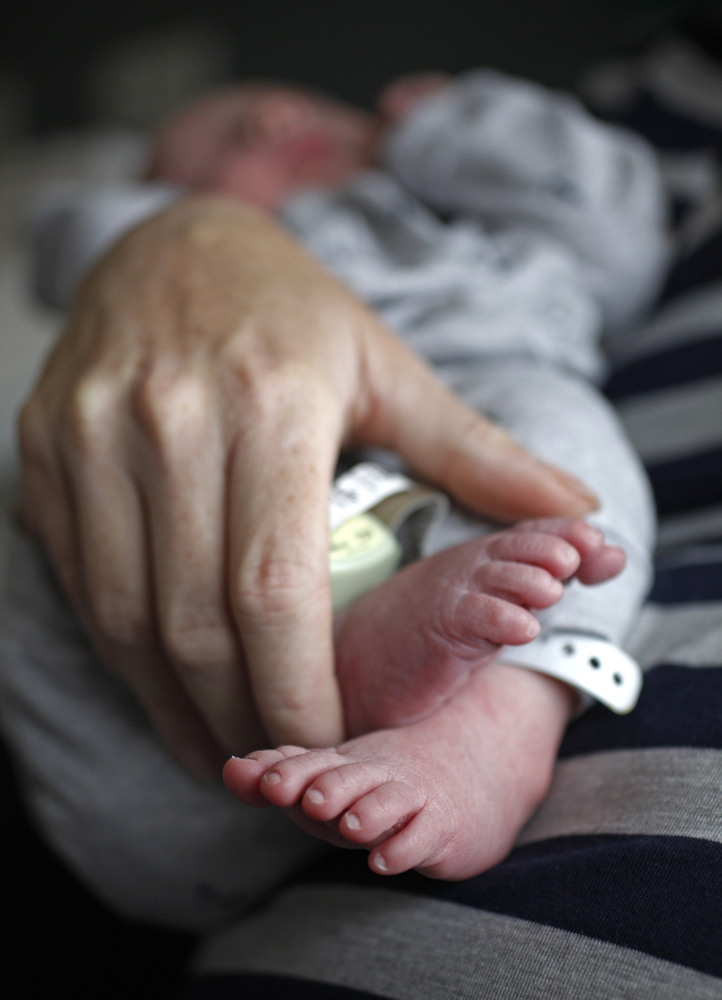AUGUSTA — What are you getting your mom this Mother’s Day? A card? Flowers? Or maybe you’re taking her out for a nice meal. Across Maine, we’ll honor and thank our mothers for their love and support. We recognize that we owe gratitude not only to our own mothers, but also to mothers everywhere.
But ask a working mother what she’d most appreciate this Mother’s Day, and the answer is likely to be “a day off” – not the “breakfast-in-bed-kids-do-the-dishes” day off, but time off from her outside-the-home job, with pay, to take care of a new baby, a sick relative or herself. Sadly, this is something that all too many mothers in Maine and across the country can’t do, because the United States is woefully behind the rest of the world in guaranteeing workers this right.
Unfair choice
Instead, many moms face the choice of having their pay docked – or even losing their job – when they need to be caregivers. Parents in most U.S. states, including Maine, are only guaranteed the right to 12 weeks unpaid leave via the federal Family Medical Leave Act.
But this federal legislation is inadequate. Around half of all workers don’t qualify, because they are part-time, or their employer has too few employees to be bound by the law. Even for those working parents who qualify, the financial difficulty of taking three months off without pay makes this little more than an empty promise.
Some working parents are fortunate to have an employer that offers paid family leave as a benefit – but not many. Only 13 percent of New England private-sector workers could take paid family leave in 2015, according to the Department of Labor. Another 38 percent of workers had no guaranteed paid sick leave. Most astonishing of all, tens of thousands of Mainers can’t even take unpaid family leave.
Those people have no choice but to quit their job to care for a child or another family member.
This has to change.
Paid family and medical leave would be good for Maine’s workforce in many important ways. Women who can take paid family leave are more likely to return to the labor force after giving birth or adopting a child. The ability to take paid leave to care for a sick child or aging parent also makes women, in particular, more likely to continue working later in life. With Maine’s labor pool shrinking, our economy can’t afford to maintain barriers that impede mothers’ ability to work
Paid leave also helps level the playing field for women. Over the course of their careers, women lose out on tens of thousands of dollars in wages, miss promotions and get less in Social Security and other retirement payments because they couldn’t contribute as much as men to taking time to care for their families. If we truly want a society that values strong families, then we need to stop punishing women for their role in caregiving.
Scientific research also shows concrete health benefits from paid family leave. Paid leave can reduce rates of infant mortality, encourage breast-feeding of children and improve the vaccination rate among children.
Mothers who take paid leave are also less likely to experience post-partum depression.
Paid family leave doesn’t just help mothers. Men could take it, too, helping to rebalance expectations of caregiving within families. Nor are obligations to family restricted to our children.
Aging population
Maine has the oldest population in the nation, so working men and women are well acquainted with the need to provide care to elderly mothers and fathers. Almost half of all workers have provided some level of unpaid elder care over the past five years, and that number will grow as our population continues to age.
Paid time away from work to care for an infant, an adopted child, elder or other family member is long overdue. California, New York, New Jersey and Rhode Island have enacted paid family and medical leave programs. Maine should too.
Other states fund family leave with employee contributions to an insurance fund (similar to the Social Security trust fund), so employer cost is minimal. In fact, businesses save money because paid family leave reduces turnover and the subsequent costs of training new workers. Businesses would benefit from more productive staff, workers and their families would be healthier and more economically secure, and all Mainers would benefit from a more prosperous economy.
If we’re serious about honoring mothers – and all parents – this Mother’s Day, let’s give them a gift that’s long overdue: guaranteed paid family and medical leave.
Send questions/comments to the editors.


